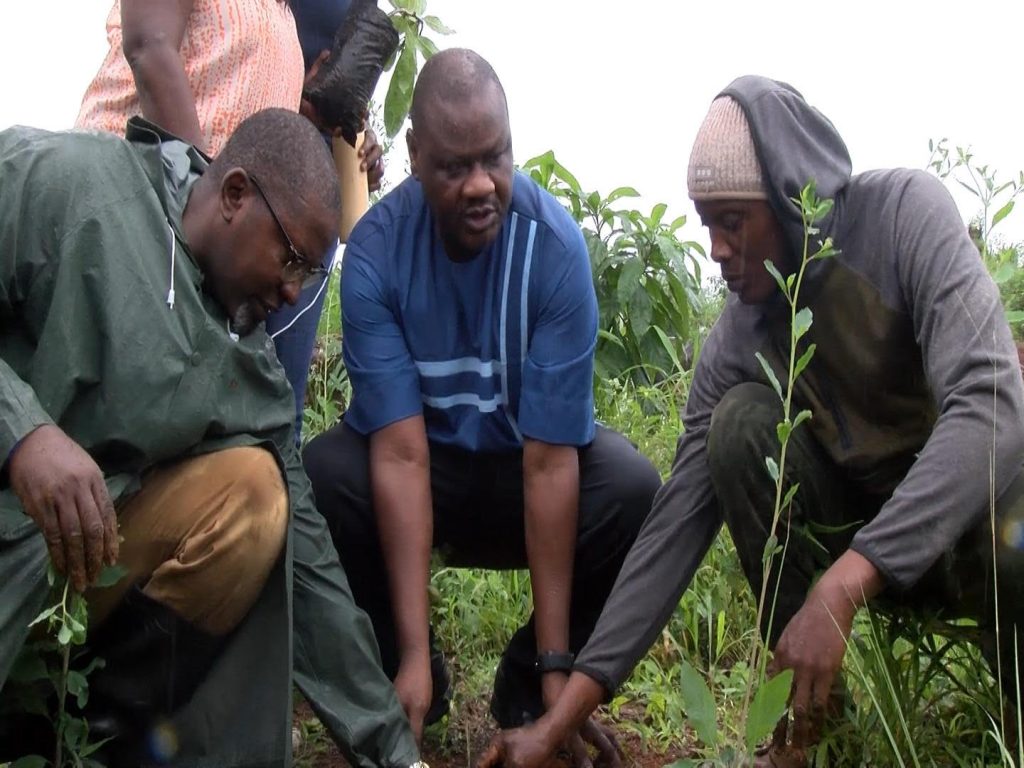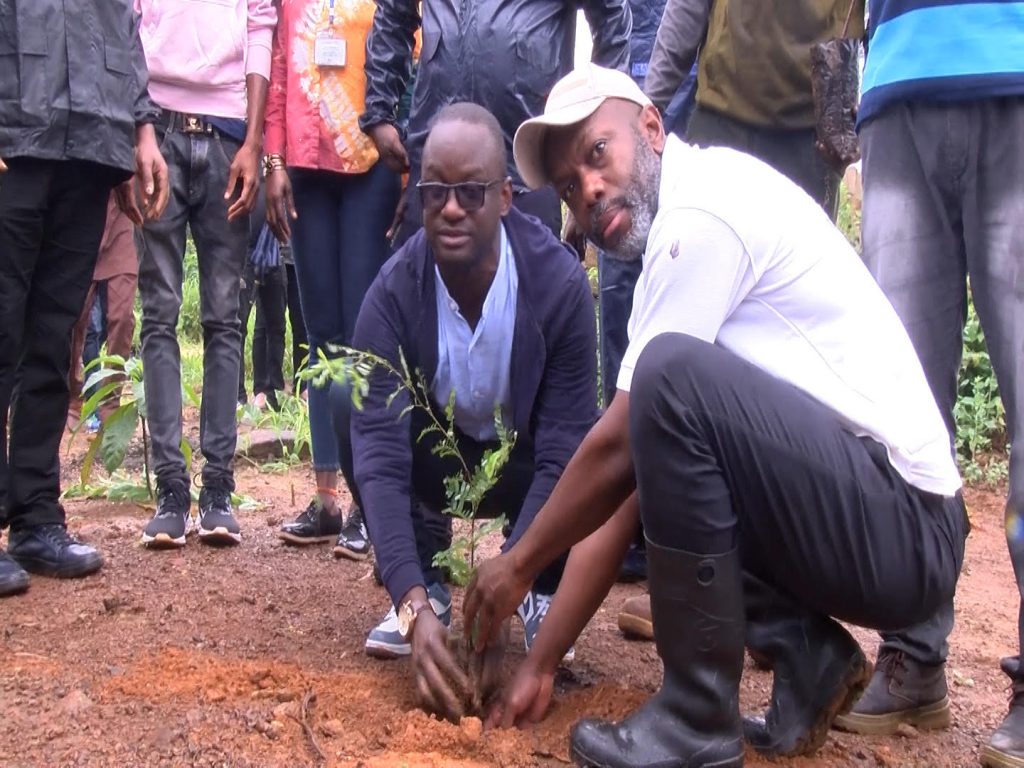Jiwoh Abdulai, Minister of Environment and Climate Change planting a tree at the Western Area Peninsula National Park.
The Government of Sierra Leone has embarked on a significant tree-planting initiative within the Western Area Peninsula National Park, backed by the Global Environment Facility (GEF). This initiative is part of the broader “Sustainable and Integrated Landscape Management of the Western Area Peninsula” project, which aims to address critical environmental challenges and bolster climate resilience in the region.
The Western Area Peninsula National Park is recognized as a vital biodiversity hotspot, serving as a habitat for species such as the Western Chimpanzee, while also supplying over 90% of the water for the Guma Dam. However, the park is under severe threat from human activities, including deforestation, charcoal production, and mining. These activities have led to significant degradation of the park’s resources, jeopardizing the water supply essential for the city’s residents.
In a collaborative effort with the United Nations Development Programme (UNDP), the Government of Sierra Leone is implementing a six-year project that focuses on sustainable landscape management. This initiative is informed by extensive preliminary studies that identify key challenges and formulate effective responses to the impacts of climate change in the region.
During the launch event, the Minister of Environment and Climate Change, Jiwoh Abdulai, emphasized the importance of the tree-planting exercises as a strategic addition to the Ministry’s efforts to combat land degradation, encroachment, and forest fires within the national park. He articulated the initiative’s primary goal of restoring the park to its natural state, highlighting the urgent need for action to protect this critical ecosystem.

Minister Abdulai announced that stringent legal measures would be enforced against individuals involved in illegal activities such as encroachment within the park. He underscored the ministry’s unwavering commitment to environmental conservation and restoration, signalling a zero-tolerance approach to violations that threaten the park’s integrity.
Chernor Bah, the Minister of Education and Civic Education, also addressed the participants, urging residents to actively support the Ministry of Environment in its initiatives. He assured attendees that his Ministry is fully committed to the project and will ensure it receives the necessary attention to meet its objectives. Bah stressed the importance of collective responsibility among citizens in caring for the environment, calling for adherence to environmental guidelines and practices.
Richard Musinguzi, representing the UNDP Resident Representative, reaffirmed UNDP’s commitment to collaborating with the Government of Sierra Leone to tackle environmental challenges. He stated, “I reaffirm UNDP’s steadfast commitment to partnering with the Government of Sierra Leone in driving transformative environmental solutions, bolstering climate resilience, and fostering sustainable development pathways that shield vulnerable communities from the impacts of climate change and other shocks, ultimately ensuring a more resilient and prosperous future for all Sierra Leoneans.”
The event concluded with a tree-planting activity that involved various stakeholders, including government officials and community members. The project aims to restore 2,000 hectares of forest cover within the Western Area Peninsula, marking a significant step towards environmental restoration and sustainability in Sierra Leone. Through these concerted efforts, the government and its partners hope to secure a healthier ecosystem and a more sustainable future for the region’s inhabitants.
